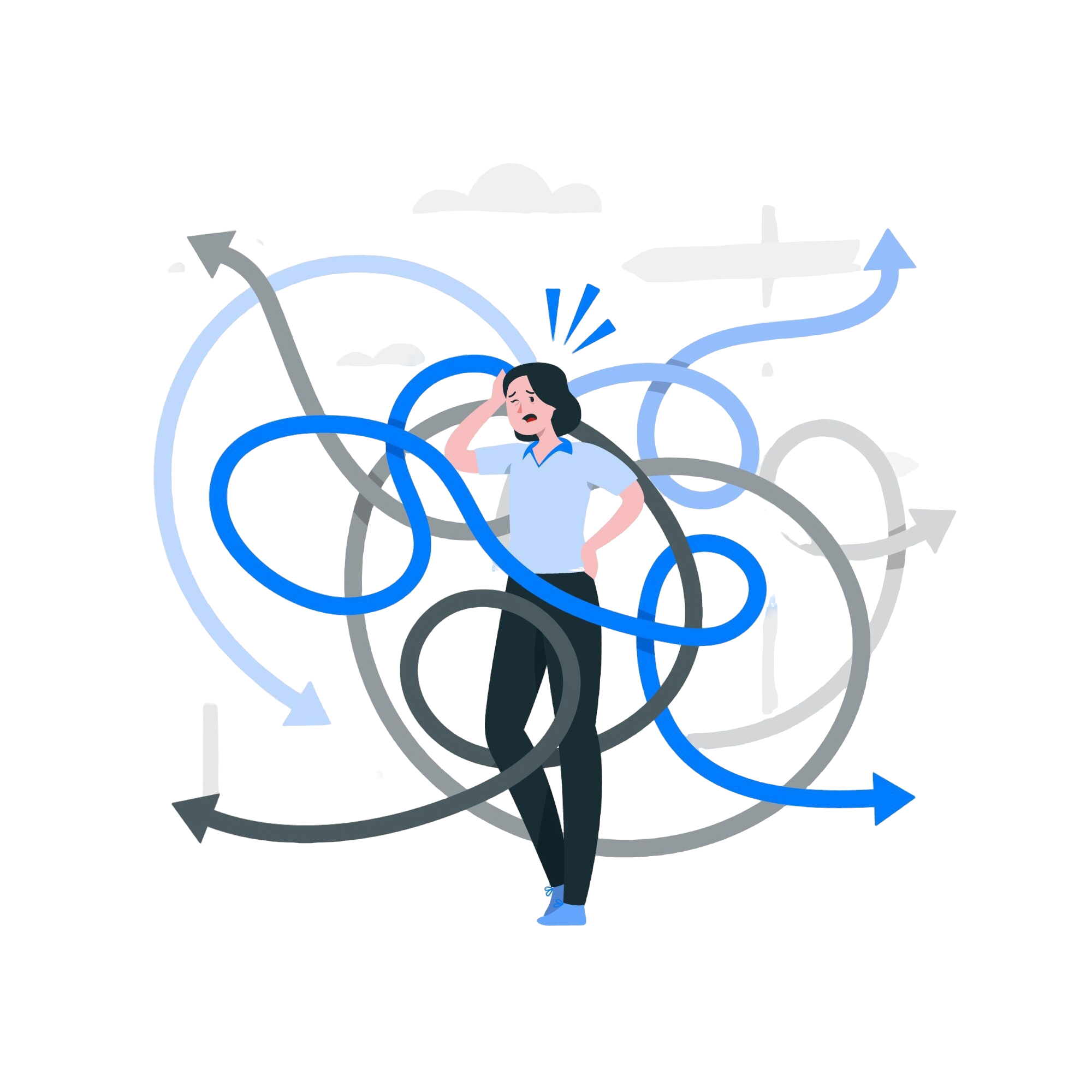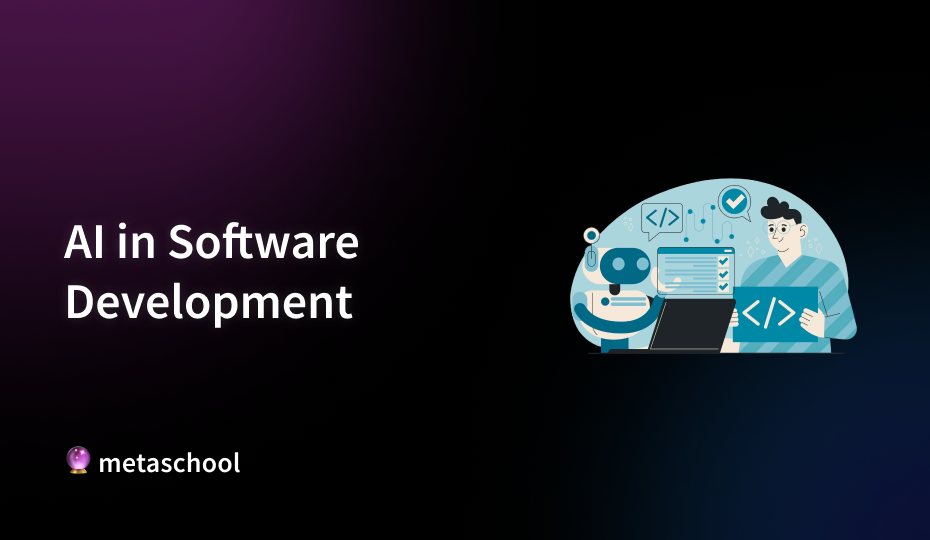Table of Contents

Imagine reducing software testing time by 30% or identifying critical bugs within seconds instead of hours — this is the transformative power of Artificial Intelligence (AI) in software development. AI is revolutionizing the industry by introducing tools and techniques that boost productivity, ensure code accuracy, and inspire innovation. By automating repetitive tasks, enhancing code quality, and enabling creative problem-solving, AI has become an indispensable asset in modern software engineering, driving efficiency and redefining possibilities.
This article will explore the role AI plays in reshaping the software development lifecycle and the benefits and challenges that come with it.
How AI Enhances Software Development
- Automation of Repetitive Tasks: AI automates time-consuming tasks such as code generation, debugging, and testing. Developers can now focus on more complex and creative aspects of their work while AI handles mundane activities, improving efficiency and reducing human error.
- Code Generation and Completion: Tools like GitHub Copilot and IBM watsonx Code Assistant use AI to suggest code snippets, complete lines of code, or even generate entire functions. These tools interpret natural language descriptions and transform them into executable code, speeding up development cycles.
- Bug Detection and Optimization: AI-driven tools can identify vulnerabilities and inefficiencies in code, offering real-time fixes and optimizations. By analyzing historical data and patterns, AI can predict potential errors and suggest solutions, reducing debugging time and enhancing software quality.
- Project Management and Resource Allocation: AI aids in project planning by analyzing historical trends, managing resources, and offering accurate timelines. It automates scheduling, monitors workflows, and ensures that resources are used effectively.
- Documentation and Knowledge Sharing: Generative AI tools create and maintain up-to-date documentation, translating complex code into easily understandable language. This facilitates knowledge sharing among teams and improves collaboration.
Benefits of AI in Software Development

- Increased Speed and Efficiency: AI accelerates software development by automating repetitive tasks such as code generation, testing, and debugging. This reduces development cycles and allows teams to deliver projects faster. Developers can focus on more strategic aspects, such as design and innovation, improving overall productivity.
- Enhanced Software Quality: By detecting bugs and vulnerabilities early in the development process, AI ensures that the final product is more reliable and secure. AI-driven optimization tools analyze code for inefficiencies, offering suggestions to improve performance and reduce errors before deployment.
- Democratization of Development: No-code and low-code platforms powered by AI make application development accessible to non-technical users. These tools allow individuals without formal programming knowledge to create functional software, broadening participation and enabling businesses to innovate without relying solely on technical teams.
- Improved Decision-Making: AI analyzes vast datasets to provide actionable insights for better planning, resource allocation, and risk management. For instance, predictive analytics can forecast project timelines and resource needs, enabling teams to make informed decisions that optimize workflows and outcomes.
Challenges and Mitigation Strategies

- Bias in AI Models: AI systems trained on biased datasets can produce unfair or skewed results, potentially reinforcing existing inequalities or errors. To mitigate this, developers should use diverse and representative datasets during training, implement regular audits of AI outputs, and employ fairness-aware algorithms to ensure equitable outcomes.
- Overreliance on AI: Overdependence on AI tools may lead to a decline in fundamental coding skills among developers. While AI enhances productivity, it’s essential to maintain a balance by encouraging manual coding and critical thinking. Combining AI assistance with hands-on development practices ensures that teams retain their expertise and adaptability.
- Security Vulnerabilities: AI-generated code can inadvertently introduce security flaws, such as exploitable loopholes or poorly structured logic. To address this, developers should implement human oversight to review AI-generated code, perform rigorous security testing, and use automated tools to monitor for vulnerabilities throughout the development lifecycle.
- Lack of Transparency: Complex AI models often function as “black boxes,” making it difficult to understand how decisions are made. This lack of interpretability can hinder accountability and trust. To counter this, developers should use explainable AI frameworks and document decision-making processes, ensuring transparency and building confidence in AI-driven systems.
Key Use Cases of AI in Software Development
| Use Case | Description | Benefits |
|---|---|---|
| Testing Automation | AI generates test cases, automates test execution, and optimizes processes for higher coverage. | Reduces manual effort, increases test accuracy, and speeds up debugging. |
| Security Enhancement | AI scans code for vulnerabilities, identifies risks, and recommends mitigation strategies. | Improves application security and minimizes the risk of cyberattacks. |
| UX Design | AI designs user interfaces and customizes user experiences using behavioral data. | Enhances usability, engagement, and personalization. |
| DevOps and CI/CD Pipelines | AI automates integration, deployment, and performance monitoring in development workflows. | Increases build efficiency, reduces downtime, and streamlines development pipelines. |
Future of AI in Software Development
The future of AI in software development promises groundbreaking advancements that will fundamentally redefine how applications are built, deployed, and maintained. AI is expected to go beyond its current capabilities, enabling systems that can autonomously design software architectures, write optimized code, and even self-heal by detecting and resolving issues in real time without human intervention.
Developers can look forward to AI tools that not only assist but also actively collaborate, learning from user feedback to improve functionality and usability. Predictive analytics powered by AI will refine requirement gathering, identifying potential risks and suggesting solutions before development begins. Additionally, AI-driven platforms will foster fully automated deployment pipelines capable of adjusting to dynamic workloads and environments.
As AI systems grow more advanced, they will play a central role in enhancing software security by proactively identifying vulnerabilities across complex codebases and automatically implementing fixes. The integration of explainable AI will ensure greater transparency in decision-making processes, fostering trust and accountability.
Looking ahead, the synergy between AI and human creativity will push the boundaries of what’s possible, driving innovation and enabling the creation of software that is not only smarter and more efficient but also deeply intuitive and aligned with user needs.
Related Reading:
- How to Build an Efficient Keyword Extractor using GPT-4
- How to Build a Customer Support Chatbot with GPT-4
- AI-Powered Personal Fitness Coach Using GPT-4
- How to Build a Code Review Assistant Using AI
- What is Generative AI, ChatGPT, and DALL-E? Explained
FAQs
What is AI in Software Development?
AI in software development refers to the use of artificial intelligence technologies to enhance, automate, and optimize the software creation process. It includes tools and techniques for writing code, debugging, testing, and even generating new software applications. AI-powered platforms like GitHub Copilot and ChatGPT assist developers by suggesting code snippets, automating repetitive tasks, and improving overall productivity.
What are the 4 Types of AI Software?
Machine Learning (ML) Software: Focuses on training models to identify patterns and make predictions, such as TensorFlow and PyTorch.
Natural Language Processing (NLP) Software: Enables interaction with humans using text or speech, like ChatGPT or Google Dialogflow.
Computer Vision Software: Processes and interprets visual data, used in tools like OpenCV or YOLO for image recognition.
Robotic Process Automation (RPA) Software: Automates routine tasks with bots, such as UiPath or Blue Prism.
Can I Use AI to Develop Software?
Yes, AI can be a powerful tool for developing software. AI-powered tools like GitHub Copilot, OpenAI Codex, and Tabnine assist developers by generating code, automating debugging, and identifying potential vulnerabilities. AI frameworks such as TensorFlow or PyTorch enable developers to build custom AI applications. These tools significantly reduce development time and improve the quality of software.
How to Become an AI Software Developer?
Learn programming, study AI concepts, use tools like TensorFlow, work on projects to build your portfolio, and gain certifications in AI or machine learning.
